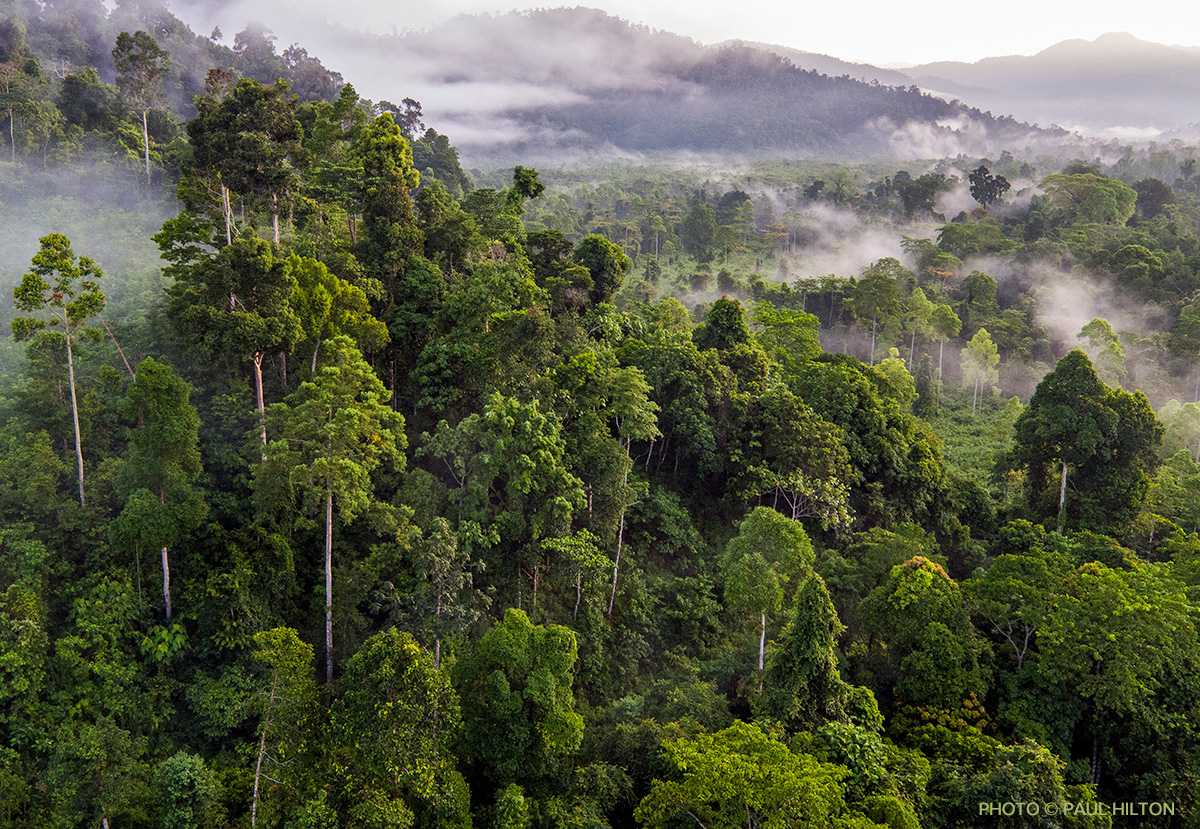Major Brands Again Caught Sourcing Deforestation-Linked Palm Oil, This Time From Producer Company PT. Laot Bangko
Just weeks after a major undercover field investigation by Rainforest Action Network (RAN) exposed global food brands as sourcing illegally grown palm oil from within Indonesia’s nationally protected Rawa Singkil Wildlife Reserve, RAN is releasing fresh evidence of deforestation in the region connected to many of the same brands through a different supplier, PT Laot Bangko. PT. Laot Bangko has been exposed for three years as a producer of Conflict Palm Oil that is driving deforestation in the Leuser Ecosystem. Published reports show that the company was responsible for the destruction of lowland rainforests in the Singkil-Bengkung region between May and December 2017 and early 2018.
Recent satellite images and evidence collected during field investigations, shown below, prove that PT. Laot Bangko has continued to destroy forests while selling oil palm fruit from its non-compliant palm oil plantation to the global market most recently via a mill operated by PT Bumi Daya Agrotamas—a known supplier to Unilever, Nestlé, PepsiCo, Mondelēz, General Mills, Kellogg’s, Mars and Hershey’s. The palm oil was delivered to the mill via a number of palm oil brokers, known as Ombang Bako in Longkip and ADRI in Sp Kiri.
The satellite images below show the extent of deforestation in its concession areas that stretches over six thousand hectares of land inside, and adjacent to, the border of the Leuser Ecosystem.
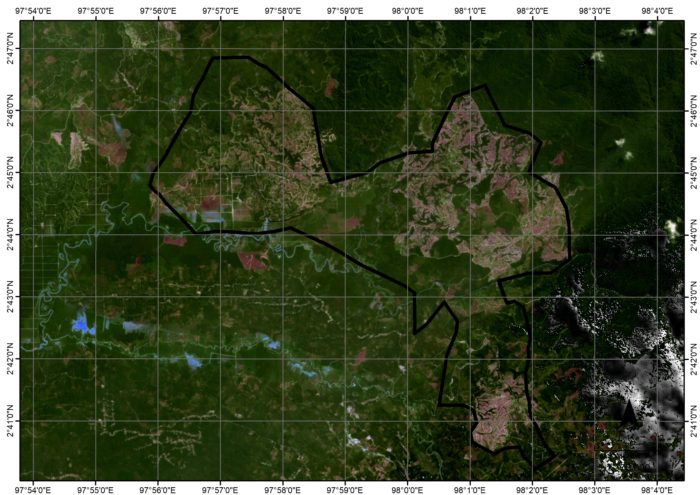
Deforestation has continued up until August 2019 both within and outside the concession boundary area. Hundreds of hectares of lowland rainforests have been cleared within the Leuser Ecosystem.
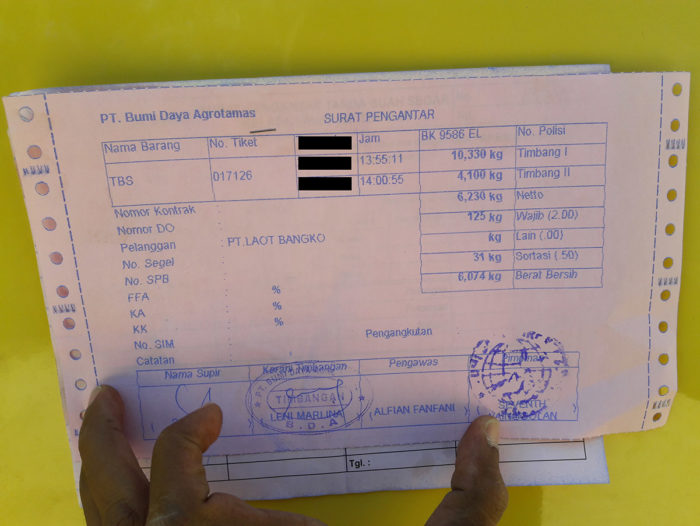
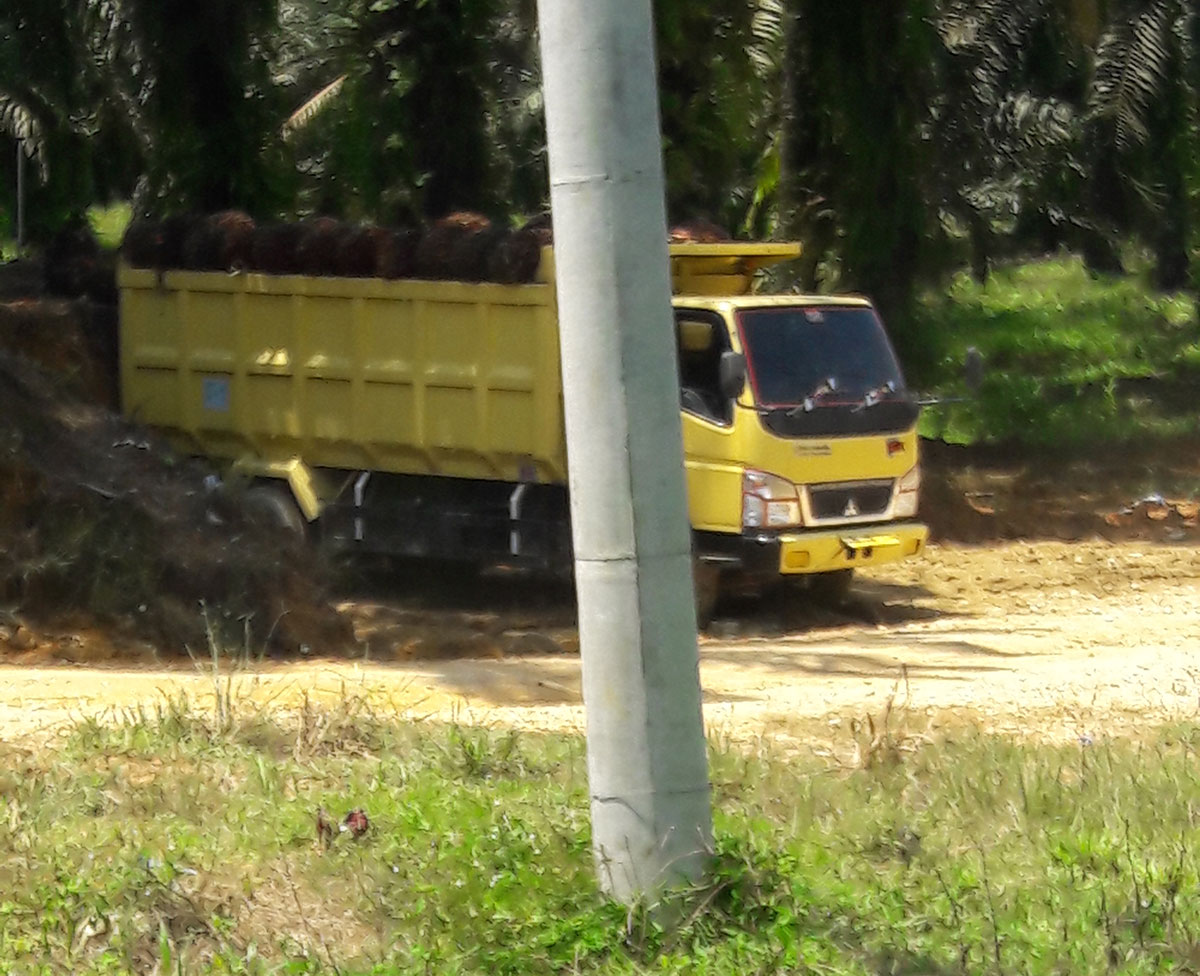
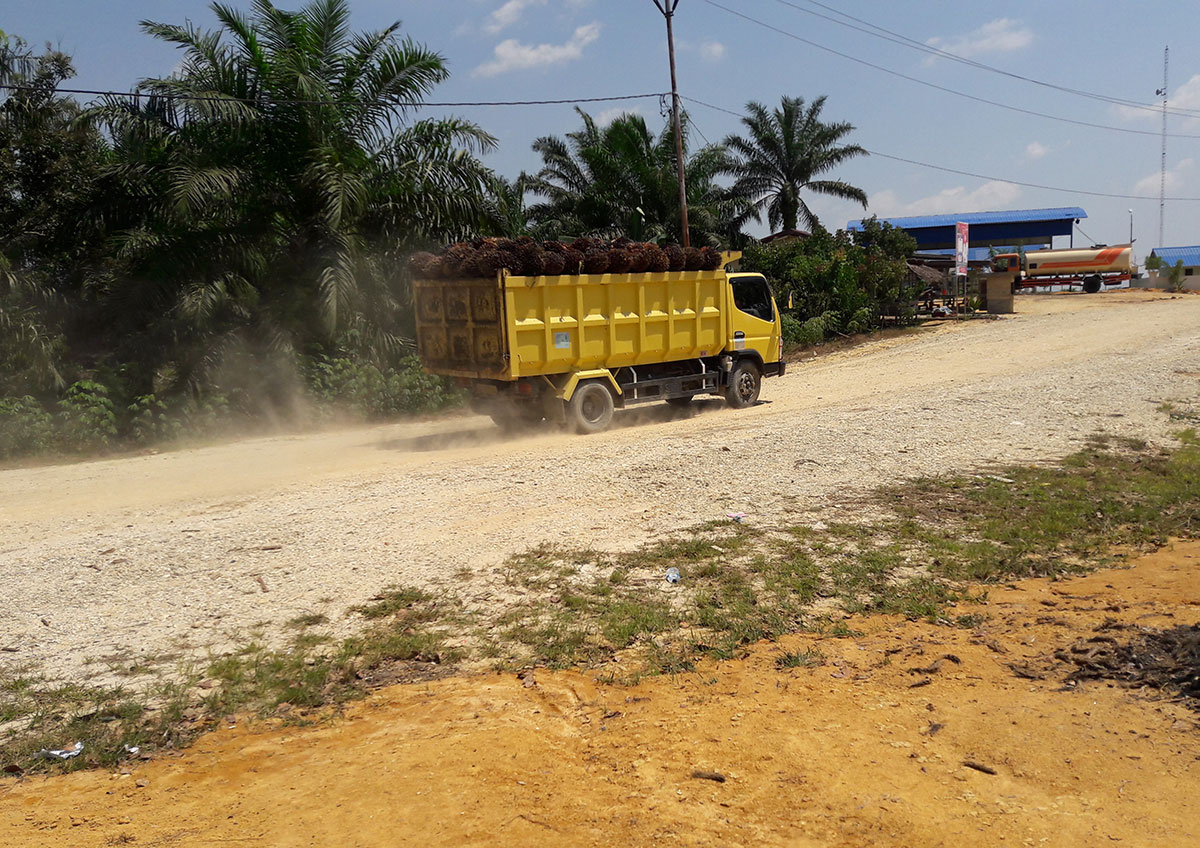
Field investigations found that PT Bumi Daya Agrotamas was selling palm oil to refineries operated by Musim Mas. This evidence is supported by Musim Mas’s latest published mill list. A significant number of secondary traders are also sourcing from PT. Bumi Daya Agrotama, including Cargill, ADM, AAK, Bunge Loders Croklaan, Fuji Oils, and Louis Dreyfus and are therefore associated with the destruction of the lowland rainforests in the Singkil-Bengkung region.
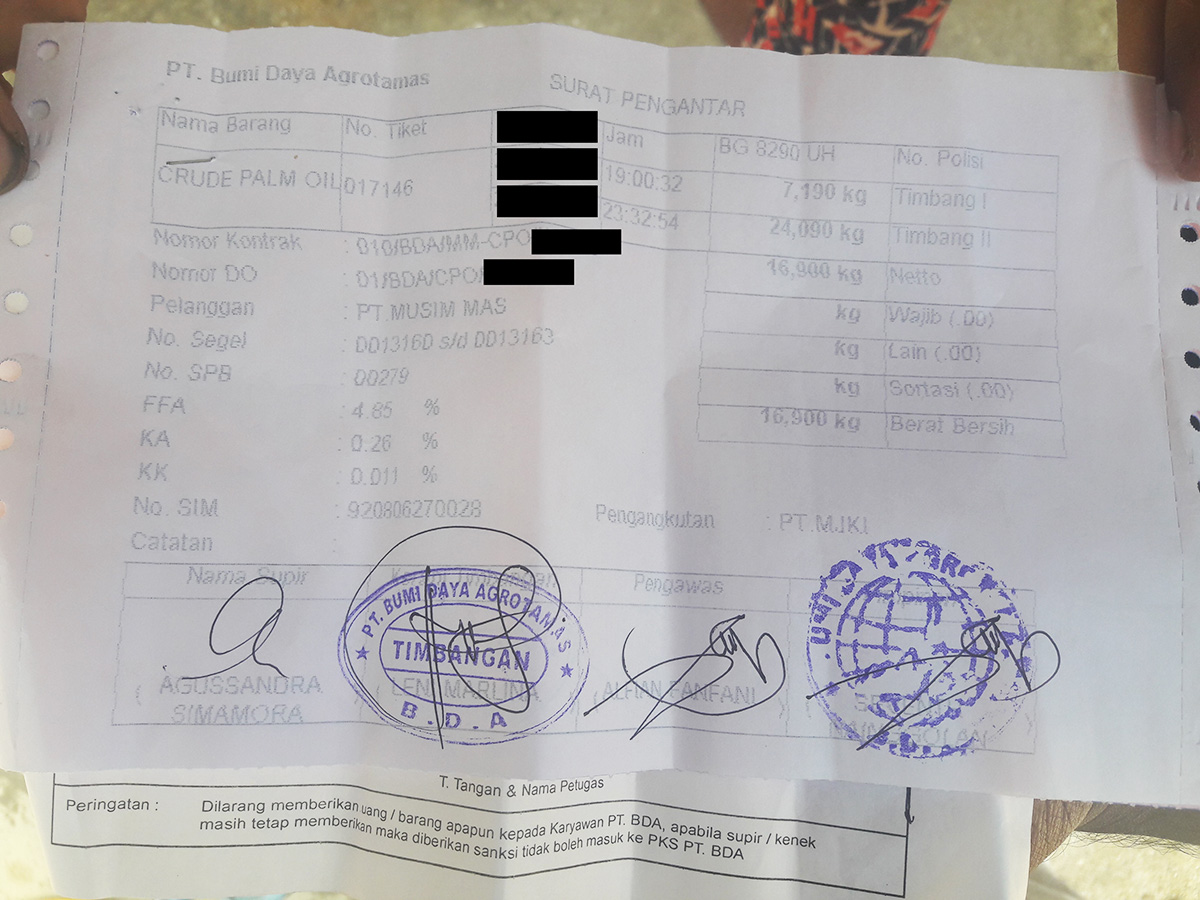
This is not the first time that PT Laot Bangko has been identified for supplying Conflict Palm Oil to the global market. In November 2018, Golden Agri Resources (GAR) conducted a field visit to confirm deforestation findings and to determine which of its supplying mills located in the Singkil-Bengkung region were sourcing from the non-compliant supplier. GAR’s report cites that it was not sourcing from PT. Laot Bangko during the months of the reported deforestation and that one supplier, PT. Bangun Sempurna Lestari (PT BSL), had ceased sourcing in August 2018. GAR also reported that another mill, the controversial PT. Global Sawit Semesta, featured in our last case study exposing its sourcing of illegal palm oil grown in the Rawa Singkil Wildlife Reserve, stopped in April 2017. Given the evidence presented in the major undercover field investigation on the lack of adequate traceability and compliance systems in place at the PT Global Sawit Semesta mill, and GAR’s failure to ensure that all its supplying mills implement traceability systems by February 2019, there is a risk that both mills may continue to source from PT Laot Bangko.
In its field visit report, GAR also states that six of its other supplying mills are not sourcing from PT. Laot Bangko, including PT. Samudera Sawit Nabati (PT. SSN)—one of two mills exposed in September 2019 for sourcing illegal palm oil. Interviews conducted with staff of palm oil mills during the investigations indicated that PT. Laot Bangko was continuing to supply PT. SSN, a supplier to GAR, despite its failure to halt deforestation. PT SSN’s resumption of sourcing from PT Laot Bangko demonstrates once again that GAR has failed to ensure its suppliers implement agreed corrective actions.
The failure of major palm oil traders including Golden Agri Resources (GAR), Musim Mas, Cargill, ADM, AAK, Bunge Loders Croklaan, Fuji Oils and Louis Dreyfus to implement their No Deforestation, No Peatland and No Exploitation policies across their global supply chains is leading to ongoing sourcing of Conflict Palm Oil grown at the expense of the Leuser Ecosystems by major snack food companies.
In June 2019, Unilever publicly confirmed that PT. Laot Bangko is an indirect supplier that may be entering its supply chain via its trading networks and is actively working to verify evidence of deforestation through its monitoring system and the deployment of field investigators. Nestlé, PepsiCo, Mondelēz, General Mills, Kellogg’s, Mars and Hershey’s remain at risk of using Conflict Palm Oil grown by this problematic supplier via their sourcing from PT. Bumi Daya Agrotamas, and have so far failed to respond publicly to the ongoing reports of deforestation by PT. Laot Bangko or intervene directly to halt the destruction of Singkil-Bengkung rainforests caused by PT. Laot Bangko.
PT. Laot Bangko is owned by PT. Bima Golden Powerindo—a company controlled by William and Cynthia Taylor that also owns a palm oil mill and plantation called PT Muara Jambi Sawit Lestari in Jambi, Indonesia. PT Muara Jambi Sawit Lestari is also a known supplier of Nestlé, PepsiCo, Mondelēz, General Mills, Kellogg’s, and Mars and traders Cargill and ADM.
RAN is demanding that the snack food companies and palm oil traders caught contributing to this destruction stop buying palm oil sourced from PT. Bumi Daya Agrotamas, and PT Bima Golden Powerindo, until transparent and verifiable monitoring, traceability and compliance systems are established to ensure they are only sourcing truly responsible palm oil. PT. Laot Bangko must be placed on a permanent No-Buy list due to the scale of the destruction it has caused and its ongoing violation of No Deforestation policies.
PT. Laot Bangko’s permit to operate its palm oil plantation is due to expire in December 2019. Given its gross violation of the Indonesian and Aceh government’s moratoria on forest clearing for palm oil it should not be renewed by government officials.
References:
Unilever 2019. Mill List 2018.
Nestlé, August 2019. Mill List April 2018.
Mondelēz. April 2019. Mill List late 2018.
General Mills. June 2019. Mill List 2018.
Mars. December 2018. Mill List July 2017 to June 2018.
Kellogg Company. 2019. Mill List 2018.
Landsat 8 and Sentinel 2 analysis inside and surrounding permit area 19/HGU/BPN/1989.
Musim Mas. 2019. Supply Chain Map. Mill list January to March 2019
Cargill. 2018. Mill List. Q1 2019
ADM. 2019. Global Palm Oil List. January to Dec 2018
Bunge Loder Croklaan. 2019. Mill List Q3 2019.
Fuji Oil. 20189. Mill List July to December 2018.
Louis Dreyfus Company (LDC). 2019. Mill List H2 2018.
Golden Agri Resources. No date on publication.
Golden Agri Resources. 2019. Mill list January to March 2019.
